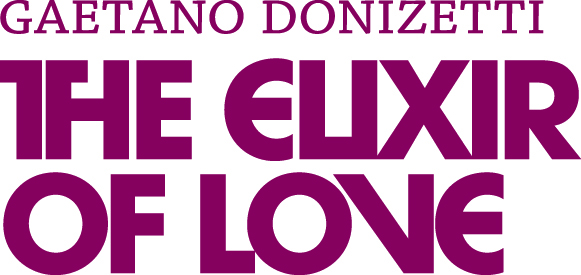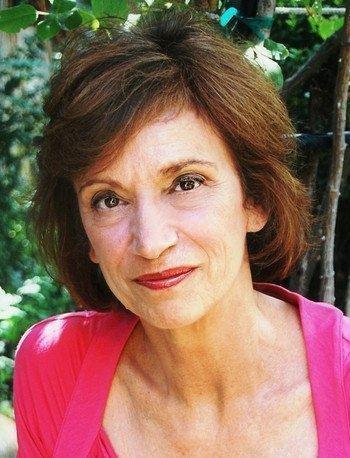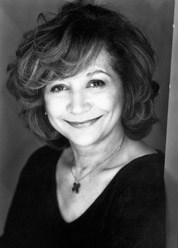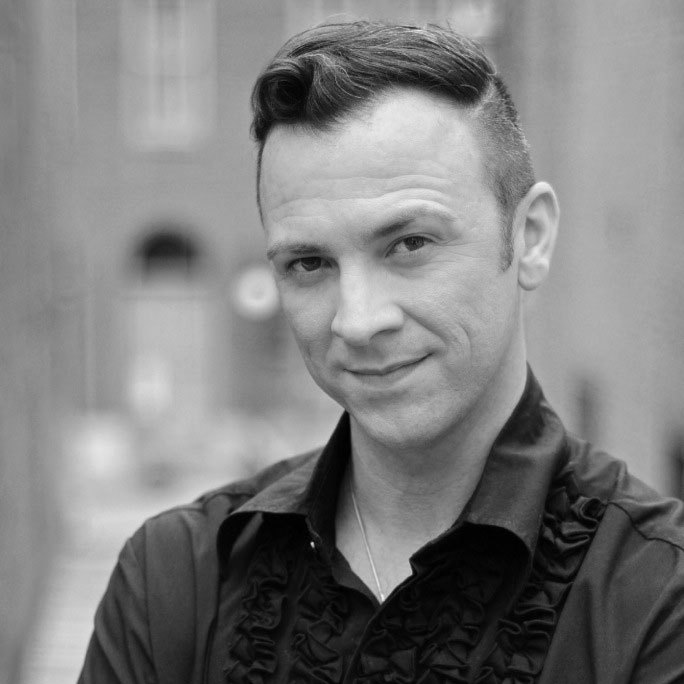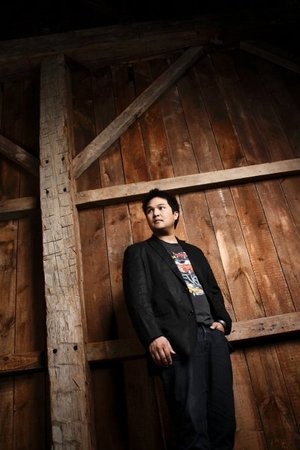Image courtesy of Virginia Opera
Want to see Puccini’s Madama Butterfly? Donizetti’s The Elixir of Love? Mozart’s Don Giovanni? Weill’s Street Scene? I bet you said yes, yes, yes, and huh? The Virginia Opera will serve up these operas in reverse of that order as they begin their new season in late September, with the usual triple play of each opera being performed in Norfolk, Fairfax, and Richmond. We’ll get to that "huh" response on Street Scene in a moment, but first a timely, practical matter: Ticket packages are currently on sale; individual tickets go on sale on August 1 for Fairfax and on August 6 for Norfolk and Richmond.
Virginia Opera’s 2018-2019 Season
Street Scene (1947), Kurt Weill and Langston Hughes
Sep 28, 30, Oct 2 – Norfolk
October 6, 7 – Fairfax
October 12, 14 - Richmond
Don Giovanni (1787), Wolfgang Amadeus Mozart and Lorenzo da Ponte
Nov 2, 4, 6 – Norfolk
Nov 10, 11 - Fairfax
Nov 16, 18 - Richmond
The Elixir of Love (1832), Gaetano Donizetti and Felice Romani
Feb 8, 10, 12 - Norfolk
Feb 16, 17 – Fairfax
Feb 22, 24 - Richmond
Madama Butterfly (1903), Giacomo Puccini and Giuseppe Giacosa/Luigi Illica
March 15, 17, 19 – Norfolk
March 23, 24 – Fairfax
March 29, 31 – Richmond
Image courtesy of Virginia Opera.
First up is the opera you may not have known (I didn’t) by composer Kurt Weill. Let's focus on that one a bit. Poet Langston Hughes wrote the libretto based on a Pulitzer-Prize winning play of the same name by Weill’s friend Elmer Rice; the 1929 play ran for over 600 performances on Broadway. You have to admit that’s a powerful combo of source material, librettist, and composer. Mr. Weill appears today to be well known among both Broadway people and opera people interested in new opera. It’s probably no accident that the stage director for this production is Dorothy Danner; among her many achievements/assignments, she has performed on Broadway and directed 15 previous productions for VA Opera. You have to admit that's a powerful background for directing Weill's work. But, how did Mr. Weill come to write an American opera.
Lotte Lenya and Kurt Weill, 1942; photo from Wikipedia.
In doing background reading about Mr. Weill, I find him to be one of the most interesting people I didn’t know much about. He led an extraordinary life inside and outside of music. He was born the Jewish son of a cantor in Germany in 1900 and received training from a number of well-known musical figures of that era, including the composer of Hansel and Gretel, Engelbert Humperdinck. In his twenties he became a successful composer himself and his works were quite popular in his native land, but as the Nazi threat grew in the 1930’s, he fled to Paris; in addition to his religion, his social views and his music which reflected those views were anathema to the Nazis who took steps to eradicate his work in Germany. In 1935, he and his wife traveled to the U.S. for work and stayed for the rest of his short life; he died of a heart attack in 1950. His personal life was punctuated by controversy over his socialist views and his unconventional marriage (twice) to Austrian singer Lotte Lenya. You may recall the name from Bobby Darin’s hit “Mack the Knife”; Weill composed that song for his Three Penny Opera that included fictional characters Jenny Diver, Sukey Tawdry, and Lucy Brown; Louis Armstrong added Lotte Lenya by mistake (she played Jenny Diver) and it stuck. Ms. Lenya was also an Academy Award nominated actress whom you may remember as the sadistic sharp-toed villain from the James Bond movie “From Russia with Love”. After his death, Ms. Lenya established the Kurt Weill Foundation to promote Kurt Weill’s music; VA Opera has received an award from the Foundation to support this production. And yet another interesting fact is that Dorothy Danner is a member of a theatrical family that includes actresses Blythe Danner and Gwyneth Paltrow. Small world, eh?
Art work for Street Scene; courtesy of Virginia Opera.
Weill’s musical life was also punctuated by controversy, this mainly over his decision to associate with Broadway and write popular music; his German followers and many others worldwide felt he had sold out for commercial success. While he is credited with having contributed to the development of the American musical, making music an integral part of theater, he reportedly never accepted a difference between serious music and popular music, saying “There is only good music and bad music.” In the U.S., he studied American popular and stage music, and his style evolved; Langston Hughes, a black poet, took Mr. Weill to Harlem in NYC seeking musical inspiration for Street Scene. He strove to create a new brand of opera, not necessarily called opera, combining theater, dance, and music not restricted by genre. Street Scenes, based on a popular play of the time commensurate with his social views, tells the stories of several families and individuals living in a tenement building in New York City, seemingly trapped by their circumstances; the interactions take place over a day and deal with their struggles to overcome or simply come to terms with those circumstances; if it was written in Italian instead of English, you might call it verismo. The score reportedly contains jazz, Broadway tunes, and operatic arias. I listened to a couple of snippets from the Street Scene CD to get an idea what the music was like, but stopped after a minute or two because I liked it enough to want to wait. Professional opera critics may tell you to listen to the score first and you will get more out of the opera. I think that is correct, but I’m different; I want to experience it first as the complete package.
VA Opera began its 2016-2017 season with a Weill composition, The Seven Deadly Sins. Sins is termed a ballet chante. Street Scene is termed an opera and has taken its place as a great American opera. And yet, as an opera, it first played on Broadway and won the Tony Award for Best Original Score. This reflects the fact that Weill strove to create music that was both artistically and commercially successful. In fact, Weill composed over twenty operas, most now unknown; perhaps best known are Street Scene (1947), Mahagonny (Aufsteig und Fall der Stadt Mahagonny) (1930), and The Three Penny Opera (Die Dreigroschenoper) (1928). This production is the only scheduled performance of Street Scene in the U.S. in the next couple of years. If you live outside the realms of VA Opera’s venues, I predict this one will be worth the effort to make the trip in. Kudos to Virginia Opera for bringing it forward this year to Virginia audiences.
Images courtesy of Virginia Opera.
The remainder of the season belongs to great operas in the traditional repertoire. Giovanni, Elixir, and Butterfly deserve their popularity and are the operas we keep returning to because they combine great stories with the great music of the masters. When you think of opera, Mozart, Donizetti, and Puccini come to mind among only a handful of others. Their librettists were also famous in their day and these are among their finest works. If you are a newbie to opera, it is a great chance to build your personal repertoire of operas seen or just to give opera a try.
Conductor Adam Turner; photo courtesy of Virginia Opera.
Going to the opera takes money and effort. For operas I have seen more than once, I ask myself why I should want to attend a particular performances. First, how much do I like the music? For all three of these operas the music is aces. Virginia Opera’s Principal Conductor and new Artistic Director Adam Turner will conduct all four productions. Added appeal comes from the fact that for Don Giovanni he will be conducting the Virginia Symphony Orchestra and for Madama Butterfly the Richmond Symphony Orchestra. If the music is compelling, I look to the singers. VA Opera employs established professional singers and young professionals who have made a splash and are building their professional careers,. Some will be returning favorites to VA Opera. Biographical links are included on the web pages for each opera; looking through the biographies, there are singers in every cast that I would like to hear sing. Just an impression, but I think this year's singers are an especially strong group.
l to r: Directors Dorothy Danner (Street Scene); Lillian Groag (Don Giovanni); Kyle Lang (The Elixir of Love); and Richard Gammon (Madama Butterfly); photos courtesy of Virginia Opera.
Finally, I look to the productions and thereby the director; I admit that I personally have been late to the game in focusing on the importance of the stage director and staff members. There are a lot of people critical to the success of an opera besides the singers and the conductor. First among these is the director who will make the creative decisions about how the opera is staged and determine whether the story is told effectively or not. This season shapes up nicely in that regard. Although Madama Butterfly is my favorite opera, after Street Scene which is new to me, I am most excited about Don Giovanni. Why? Director Lillian Groag. I was impressed with her The Girl of the Golden West and blown away by her Turandot, both with VA Opera. It will also be interesting to get a woman's take on Giovanni. I can’t wait to see what her production will be like. Same for Elixir of Love which will be directed by Kyle Lang, who gave us last year’s memorable Lucia di Lammermoor and collaborated previously with Groag, including on Turandot. Madama Butterfly will be directed by Richard Gammon in his debut with Virginia Opera; in the DC area he has directed productions for Opera Lafayette at the Kennedy Center. And I previously mentioned Ms. Danner.
Or you can eschew my analytical approach and say, hey man, it's live opera. It'a a living, breathing thing. It has music and singing, sets and costumes and movement to delight your senses, and acting and storytelling to worm its way into your heart. It has a team of talented, dedicated, live humans who want to engage with you, and it will happen right in front of you. You may laugh or cry or be bored, but always there is suspense. If a performance goes down, you go down too. If it soars, you soar with it. Celebrate life! What do you have to do that's better than that?
The Fan Experience: Although the operas seen in all three venues are exactly the same, the venues themselves have different pricing schemes, including discounts for student tickets. Check their web sites carefully. If you are able to purchase your tickets at the box office you can save significant change on fees. All performances have supertitles in English. Also, Dr. Glenn Winters, Virginia Opera's Musical Outreach Musical Director, provides pre-opera talks forty-five minutes before showtime; they and his blog reports leading up to each opera offer entertaining and informative insights; the pre-opera talks are frequently standing room only, so get there early.






